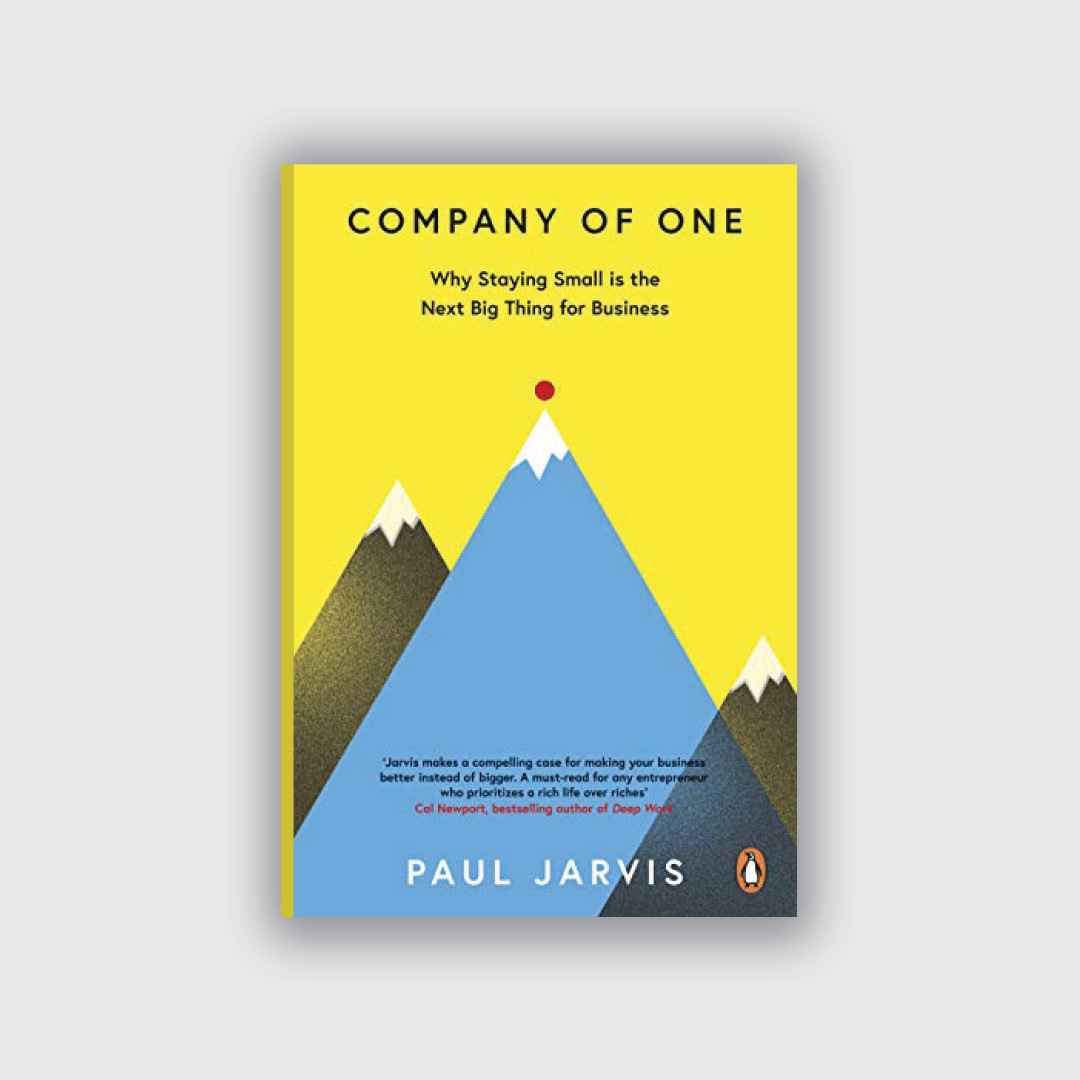Company of One is one of my all-time favorite books! Almost everyone who knows me, knows I’ve read this book numerous times, have gifted this book to a few friends, and have done a handful blog posts, and even recorded a podcast (yeah I caved in, but podcasting is difficult work!) on what I’ve learned from it.
This book from Paul Jarvis is a game-changer for anyone who values independence and freedom from a 9-5. The author tells us how and why should small businesses challenge growth, and why purposefully staying small is the next big thing for businesses.
Now you’d say - Challenge growth? Purposefully stay small? Are you out of your mind Sid? I’m trying to run a startup here! Growth is my oxygen.
Yes, I get it. And that is why I am not going to preach anything to you that doesn’t let you scale. Hey! I’m here to help startups grow, aren't I?
So, in this post, I will share my learnings from Company of One, and what founders (especially bootstrapped founders) can learn from it.
Start by solving the problem of one customer
How often have you found yourself making grand plans that require a lot of time and resources, to begin with? Grander the plan, the farther away from reality you are!
Start by solving the problem of one customer. Solve a problem they have, repeat it, improve your solution, thereby helping, pleasing, and eventually retaining the customer.
A lot of people find a problem and start solving it. But in doing so fail to understand the problem completely. Understand the problem, talk to the customer to know their pain points - and then create your product. Seek feedback first, and then start creating. Don’t assume that just because you have created a solution, there will be buyers. This more often than not leads to a sales push - we don’t want that. We want customers to be pulled by the allure of how effectively and efficiently you can solve their problems.
Pick a niche, don’t try to be everything to everyone
I understand the allure of wanting to capture the market. But in the race to do so, most startups think they can be everything to everyone. Ask yourself this question ‘Who is your ideal customer? Who are you building your product for?’. And if you get an answer that with a few edits and versions and upgrades, we can sell to almost everyone - then you’re setting yourself up for failure.
Don’t do that. You are not Amazon!
Pick a niche. Focus on it. Be the leader there. And then focus on adjacencies. Your primary and core business should pay the bills and cash flow for you to experiment.
For example - The darling from Tata Group - TITAN (Tanishq, Fastrack, Eyeplus etc) has 4 business lines - Jewelry, Watches, Eyewear & Others.
While the company earns 96% of its revenues from Jewelry & Watches, when you consider the EBIT earned from these two divisions, it earns 103% of the EBIT of the company. This implies Eyewear & Others are loss-making divisions! You can check for yourself here.
If I am not mistaken, TITAN has been present in Eyewear for a decade, and is launching new divisions like Sarees. The only reason it can do so is because the business has a strong cash flow from its core business. And well, also because its TITAN!
Create scalable systems
What is a scalable system? One that requires minimal incremental resources to be able to satisfy exponential growth. And this also means, that when the company needs to increase revenues, the number of customers, or profits; it does not need to put in an equal amount of employees or resources!
Scalable systems ensure repeatability with simplicity.
Why is it important to create scalable systems from the start?
There is nothing worse for a growing company than being exposed to gaps in customer service and happiness. A non-scalable system can spell doom for your business by way of negative publicity! After all, if a business cant perform at the same level despite growth - it should not grow in the first place. Failing to have proper systems in place will lead to confusion, chaos, and a fall in productivity!
Overheads = death
I do not think this needs any explanation. But please allow me one.
My firm hosted a ‘Learning Day’ where we invited founders and investors for panel discussions, networking, and fireside chats. An experienced founder was sharing his learnings from his first startup. They had raised a large Series A round, and were on top of the world. They got a swanky new 10,000 sq ft office, did up the interiors, purchased a bunch of “productivity” subscriptions for their employees irrespective of need/usage, and so on. It was well and good until they had revenues coming in!
But 12 months, 1 failed product update, mass-layoffs and burning loads of cash later- they folded and shut shop. In hindsight, they had enough cash to sustain for 3 years if they had not started increasing their overheads. But that’s the way it was. And that gives a fantastic learning from his experience and this book that resonates with me:
Overheads = Death
There are learnings everywhere you look. For me Company of One has been a game-changer, and I read and quote this book to obsession.
To summarize what we have learned-
Solve problems of one customer first
Find a niche, be the leader there
Create scalable systems to ensure profitable growth
Overheads can mean death for your startup
Read other notes I made
#46- Rethinking Competitive Advantage
#55- Obviously Awesome by April Dunford
#47- 100 Key Learnings from Amazon's Letters to Shareholders
Do you like what you read? Please subscribe below

